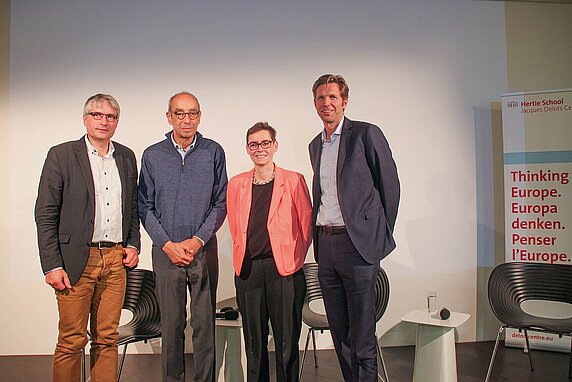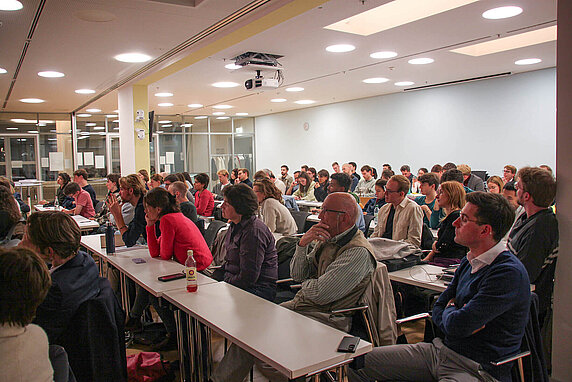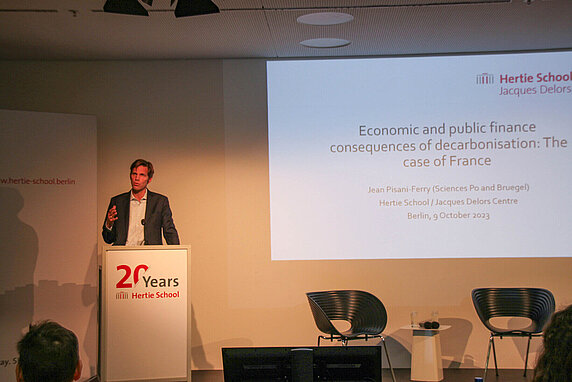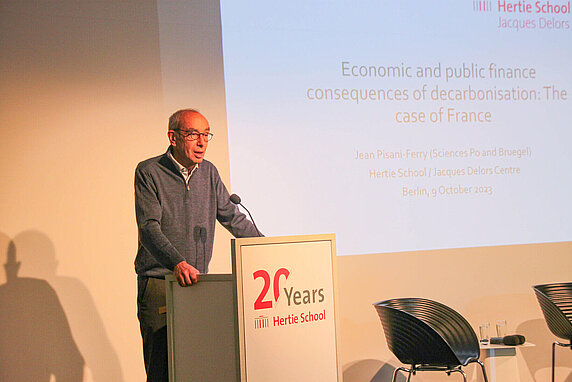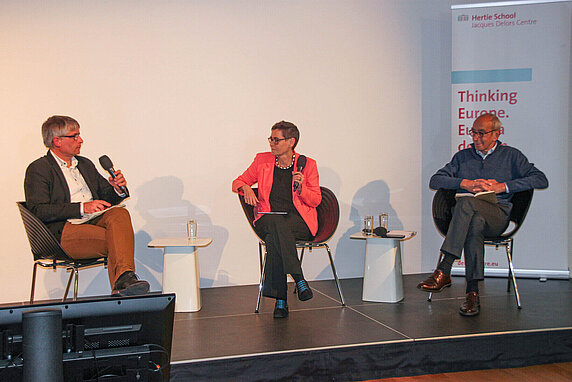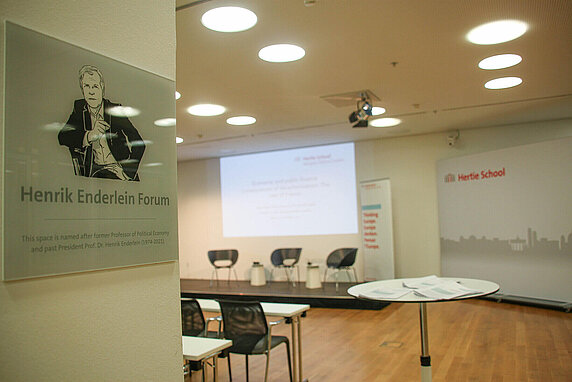The French economist and the German Secretary for Economic Affairs and Climate Action shared their ideas on financing a just transition in France, Germany and Europe.
On 9 October 2023, the Jacques Delors Centre had the pleasure of welcoming Jean Pisani-Ferry, Professor of Economics at Sciences Po Paris and Professor Emeritus at the Hertie School, and Sven Giegold, State Secretary at the Federal Ministry for Economic Affairs and Climate Action, for a public event held at the Hertie School in the Henrik Enderlein Forum.
Johannes Lindner, Co-Director of the Jacques Delors Centre, opened the evening by introducing Jean Pisani-Ferry’s much-discussed report “The European Economic Implications of Climate Action”, published in May 2023. The discussion was moderated by journalist Margaret Heckel.
A new industrial revolution
In his keynote speech, Pisani-Ferry began by stressing that the green transition is equivalent to an industrial revolution, and that it must be carried out at an "absolutely dramatic" pace. This transition will be based on three key mechanisms: the efficiency of citizens’ behaviour, the redirection of technological progress and the substitution of capital for fossil fuels. This view is also shared by Giegold, who insisted in his introductory remarks that Europe is "at an economic crossroads". He argued that the European Union has already made a strong commitment to climate action with the adoption of several key Green Deal texts. In his view, this transition also offers an opportunity: "If we are the first movers, we will be the first winners."
Large investments in the short term
The investments required to make this transition a success are substantial, but they will be recouped in the long term through lower operating costs, making "this transition unique and promising in the long term but painful in the short term", according to Pisani-Ferry. The types of investment and the share of public funding vary greatly by sector. The additional annual investment required is considerable, but there are major differences in countries’ energy systems, among other factors. Giegold was keen to point out that “these massive investments will eventually have a positive impact on economic growth”.
Who should finance the transition?
Even if private investments will be needed, Pisani-Ferry stressed the responsibility of public actors to support the green transition. The necessary investments cannot be borne solely by most citizens: investment in an electric car, a new heating system and home renovation largely exceed the annual income of most households. Pisani-Ferry and Giegold agreed that the question of social acceptability of all measures will be crucial for a successful transition.
How to finance the transition
Pisani-Ferry's report identifies several means of financing the green transition: reshuffling of public expenditures, debt and taxation. According to Giegold, the financing must be organised at the European level to ensure effective cooperation between Member States and preserve the single market. When asked about the future, the former MEP insisted that “we are not at the end of the Green Deal. […] What we need is a new stage: ‘Green Industrial Policy’”. He further stressed the need to redirect some European spending towards transformative funding. This view was shared by Pisani-Ferry, who said that while the redirection of public spending is necessary, it is not enough to achieve the investment required at the national level. His report suggests that new debt should be issued to support specific sectors that are profitable in the long term and proposes for France the implementation of a new temporary tax on the 10% wealthiest households. Giegold noted that rather than introducing a new tax, the German coalition prefers to rely on indirect taxation, for example through emissions trading schemes. Both speakers stressed that regulation and pricing policies should go hand in hand rather than being seen as opposites.
Watch the full recording of the event.

